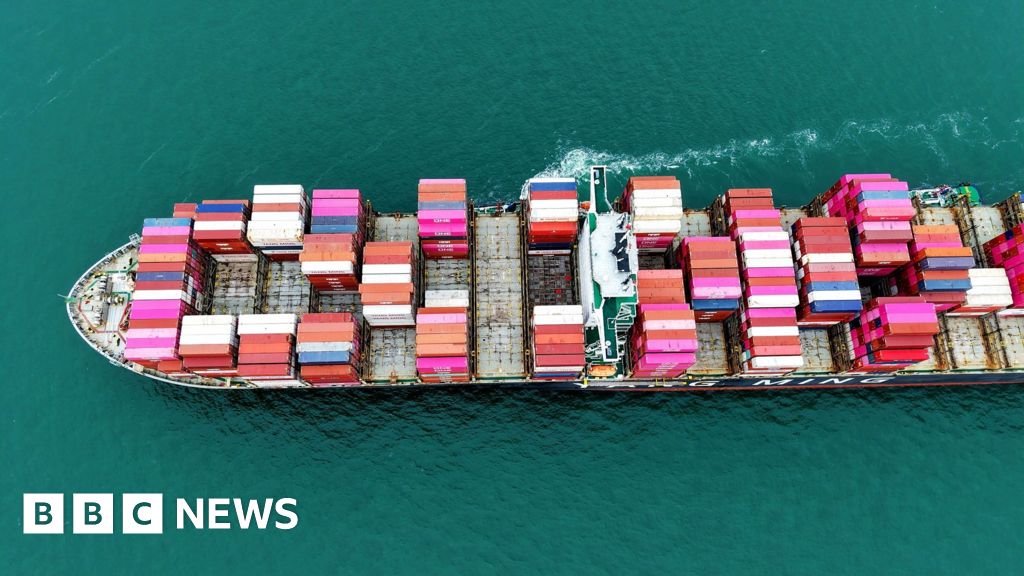Global Shipping Emissions Deal Abandoned: The Ongoing Battle for Climate Action
Overview of the Abandoned Deal
In a significant setback for environmental policy, a landmark agreement aimed at reducing global shipping emissions has been abandoned after intense lobbying by Saudi Arabia and the United States. This fallout occurred during an International Maritime Organization (IMO) meeting in London, which saw more than 100 countries come together to finalize a deal first established in April. This agreement intended to make shipping the first global industry to adopt mandated emission reduction targets, marking a historical shift in climate efforts.
What Was at Stake?
The proposed deal aspired to mandate that ship owners transition to cleaner fuels starting in 2028. Given that shipping currently accounts for approximately 3% of global greenhouse gas emissions, the urgency for reform has never been greater. Without significant intervention, emissions could rise by an estimated 10% to 150% by 2050, as projected by the IMO. This increase is fueled by the rising global trade reliance on maritime transport, which handles about 90% of goods.
Key Developments in London
The Motion to Adjourn
In a surprising turn of events after intensive negotiations, Saudi Arabia introduced a motion to postpone the discussions for an entire year, which passed by a narrow margin. This adjournment meant that the proposed plan could not be voted upon, effectively stalling the progress made over the past decade of negotiations. Vanuatu’s Minister for Climate Change, Ralph Regenvanu, vehemently criticized the move, highlighting the urgent climate challenges the world is facing.
Industry Response
The shipping industry had largely supported the deal, recognizing the need for unified global standards and the opportunity to invest in cleaner technologies. Following the adjournment, Thomas Kazakos, Secretary-General of the International Chamber of Shipping, expressed disappointment, emphasizing the need for clarity to facilitate necessary investments in cleaner maritime practices.
Political Pressure Behind the Scenes
U.S. Influence
The pressure influencing the outcome of the talks can be traced back to the Trump administration, which had actively campaigned against the agreement. President Trump had previously labeled the initiative a "green scam," warning countries of potential tariffs for supporting the deal. This political maneuvering prompted some nations, including Brazil and China, to shift their stances, undermining the collective efforts to implement meaningful change.
Key Votes
During the vote, key players such as Russia, Saudi Arabia, and the U.S. supported the motion to adjourn, while countries including the UK and most EU nations advocated for continued talks. Notably, nations like Greece chose not to align fully with the EU position, complicating unity on this critical issue.
The Need for Change in Shipping Practices
Current Emissions and Future Projections
With shipping emissions already rising, there is a pressing need for a shift towards sustainable fuel options. The industry currently relies heavily on diesel fuel, which is cost-effective but harmful to the environment.
According to Faig Abbasov, Programme Director for Maritime Transport at the think tank Transport and Environment, the existing fuel dynamics make it challenging to lower emissions without regulatory intervention. The cheaper alternatives, derived from crude oil, often result in significant environmental repercussions.
International Response
The IMO has estimated that, without significant changes, emissions from this sector could grow alarmingly. The reluctance displayed during the recent talks demonstrates a lack of consensus on how to proceed with an effective strategy for emissions reduction.
Implications for Global Trade and Climate Initiatives
Effects of Delay
With the delay in voting on the emissions deal, the timeline to implement necessary regulations by 2028 increasingly appears unfeasible. When countries reconvene in April, the focus will shift from ratifying the original agreement to renegotiating terms, which may further postpone critical actions needed to address climate change in the shipping sector.
The Broader Perspective
As global attention increasingly turns to climate change, the shipping industry faces the challenge of balancing economic viability with environmental responsibility. The trend towards climate-conscious policies is unlikely to abate, but unilateral moves by influential nations can undermine collective global action.
Conclusion: The Path Forward
The abandonment of the global shipping emissions deal represents a significant step backward in international climate efforts. With the escalating urgency of climate change, the need for collaborative action remains paramount. Future discussions must consider the political pressures and economic implications at play to ensure a sustainable framework for reducing emissions in the shipping sector.
For more information about the role of shipping in global emissions, explore additional resources on the International Maritime Organization and World Bank insights into sustainable shipping practices.


